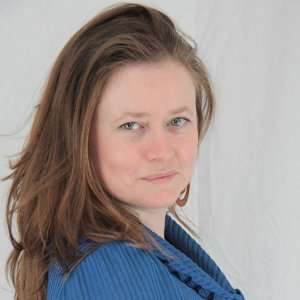Britten Sinfonia’s “At Lunch” series continues to provide much to savour. Pairing major chamber works with new commissions, Wednesday’s visit to Wigmore Hall explored repertoire for string quartet and soprano, with Alison Bell joining members of the orchestra. The major work of the concert was Schoenberg’s String Quartet no.2 in F sharp minor, and the other works had clearly been programmed to show its continuing influence on other composers. This included Brett Dean, who joined Britten Sinfonia’s Jacqueline Shave, Miranda Dale and Caroline Dearnley for the concert, which opened with his second quartet, And once I played Ophelia. Setting words either spoken by, to or about Hamlet’s ill-fated paramour, it explores her character and seeks to challenge some of the ideas held about her.
In addition to Schoenberg, echoes of his pupil Berg, and Stravinsky could be heard; the former coming in the opening movement with juddering syncopated chords underneath the whole gamut of vocal techniques urging Ophelia towards the nunnery. The second movement was strongly reminiscent of the Lyric Suite’s third movement before opening into an impassioned climax around Hamlet’s letter of love. Polonius’ chastisement of the violence of ecstatic love in the third movement was instead a musical embodiment of that feeling, highlighting Ophelia’s passion before sinking into her resigned obedience. Ophelia’s death is recounted in the fourth movement, while her departure from her father’s funeral closes the work.
Allison Bell was in her element, and the acoustic of Wigmore Hall clearly suited her voice, enabling her to bring depth and warmth to her clear coloratura, particularly in the second and third movements. Dean had composed the work with her in mind, perhaps too much so; at times it felt as if he had been unable to resist the temptation to make use of her outstanding technical abilities where a simpler vocal line would have been more effective, allowing his fine string writing to shine through. Elsewhere, though, they captured a tenseness and energy that was entirely appropriate, and relished by the quartet, with Caroline Dearnley’s sonorous high cello lines at the end of the fourth movement a highlight.
Having changed the running order to start with Dean’s work, there was another change as this was followed by the first and third movements of Georg Tintner’s The Ellipse, rather than the first and fifth. The great surprise of this piece is its date and place of composition; written between 1954 and 1959 in Australia, it sounds more like the turn of the century Vienna that inspired the young Schoenberg.
In The Ellipse, the soprano is also more of a guest than a soloist, appearing only in three of its five movements. She opens the first movement with a solo, folky setting of Da oben auf dem Berge from Das Knaben Wunderhorn before the strings take over, while in the third she appears briefly at the end. The string quartet brought huge warmth and romanticism to both movements, in particular with a lovely duet between Jacqueline Shave and Miranda Dale towards the close of the first movement. Bell was clear and sweet with a lullaby-like quality for the first movement, while her brief interjection at the end of the third joined with the quartet to bring about a romantic close.
It’s easy to see why Schoenberg’s second string quartet caused such as stir when it was premièred (by the end of the performance, it was nearly drowned out by the audience voicing its disapproval). Starting out pushing even further than Mahler harmonically and emotionally, it heralded the start of Schoenberg’s break with tonality. Radical also was the introduction of a soprano soloist in the final two movements, the first time a voice had been used in a string quartet. It was written at a time of extreme turbulence in Schoenberg’s personal life; in 1908 his wife left him for the artist Richard Gerstl, returning after his friends persuaded her a few months later. An inconsolable Gerstl then killed himself.
Such an extraordinary work deserves an extraordinary performance, and this was exactly what it got. Suggestive flashes of Verklärte Nacht and other early Schoenberg works were brought to the fore, as were hints of Ravel in the first, highly expressive movement. The second movement jumped through textures and ideas, with a real sense of Schoenberg searching for something without knowing what it was. It felt as if Schoenberg had transplanted himself into Gerstl’s soul at the moment of his suicide during the third movement, with the quartet and Bell displaying such depth of agony that they might collapse under the weight of it. The text and music of the final movement seem designed to confuse, and the performers dove into the confusion. It closed with a soaring anguish, leaving us with a sense of imperfect rapture.


